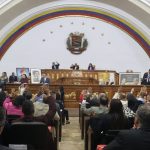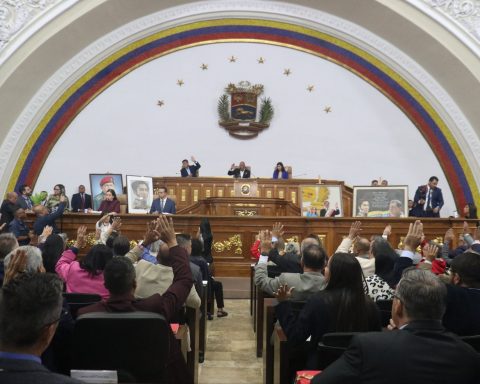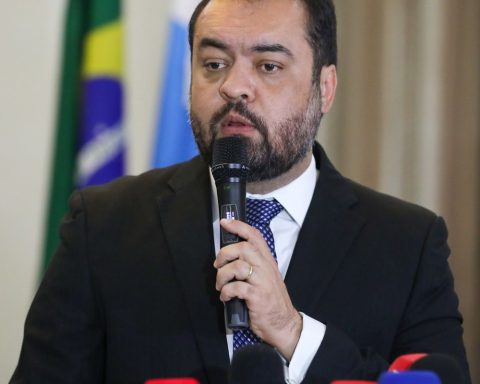AND
he world has been built with facts and ideas, with theories and practices, with actions and thoughts of women and men. Individuals and communities recognize that there are personalities that define and set directions, to build and to destroy.
One of those personalities, eminently installed in the paths of construction and love of neighbor -Mexico, Cuba, all of Latin America and the United States know it-, in the constitution of its history and memory, is José Martí. Man born in Cuba on January 28, 1853 and who has not died in the history of libertarian and emancipatory wills, in literary life, in patriotic action, in the vivacity of ideas. On the 170th anniversary of his birth, Martí, all of his works, must be vindicated and once again become the banner of our struggles: present and future.
The intense contemporary political life of Latin America, its latent scars, its peoples and landscapes, continue to be threatened by imperial, capitalist, conservative neoliberal and now also fascist voracity, all with different names and the same feverish backbone. All of Latin America is under open attack, explicit and implicit, of these atrocious voracity. It is the responsibility of a cultural activity, governed by the ethics of the survival of civilizations, to establish itself in what Martí called: a common cause, to strengthen the system opposed to the interests and command habits of the oppressors. Whatever they are called, the oppressors have shown, from the European conquests until now, to have that mandate: to conquer, exploit, dispossess, concentrate wealth, by any means and with the sole purpose of imposing, maintaining and recovering domination for the benefit of the elites.
In our country, Martí’s ideas and actions have permeated, have permeated, have made the fatherland’s heroes a continuity, a historical articulation of independence, reform, revolution and humanism that possess various elements of Martí’s thought, a dynamic of wisdom and activity, of knowledge and urgent, constant and persuasive action. Now the so-called Fourth Transformation (4T) gathers the ideology, meaning, form and substance of Martí’s ideas, with a categorical imperative: peace, but dignified peace.
Four years into the 4T, millions of Mexicans are witnesses and participants in the path of feelings and tribulations of the nation. The old legitimacies of social balances, of just social constructions, are materializing. The codes of hypocrisy were broken, all those pretenders who lived on corruption were thrown out; Parasites were expelled, wealth was directed to compensate the damages against humanity –because that is the neoliberal characteristic: propitiate the damage of poverty to accumulate comforts for the privileged–; works were promoted to exponentiate development and not dependency. The fire of revolutionary practice is lit, in motion, always managed with strategy, just as Martí proposed: strategy is political.
The words and each one of the decisions of the President of Mexico, which unleash the massive mobilization of the people, have the encouragement of Martí, the vision learned and executed from the apostle of Cuba, the efforts and projects embodied in our america
. A single blood runs through America, a constellation of liberating wills that is recreated throughout indigenous, native, and mestizo America. Unite communities, learn adversities and local stories. The peoples, says Martí, have to live criticizing each other, because criticism is health. have to Natural statesmen emerge from the direct study of nature. Read to apply. Economists study the difficulty in its origins
. thinking is serving
. Revolutionary actions must be endowed with moral content. Everything resonates these days. There is a peculiar atmosphere of reiteration in social energies, although today the world appreciates the peace that democratic processes bring with it, although times of alertness and discipline are envisioned in the face of what threatens democratic demands: fascism loaded with the advantages of economic inequalities, as always.
It is a time where the conditions already exist, due to the humanist practices in frank development, to postulate the form of one’s own thought: the Mexican humanism proposed by López Obrador.
170 years after the birth of a prodigious libertarian titan like Martí, another colossal desire to place himself at the forefront of decisions, to go against the metallic current of money and its conditions and lead a path that is made by walking, Andrés Manuel López Obrador , takes over to nurture the so-called great homeland, to exercise sovereignty, disrupt market chains, create major works for and by the people, their present and future, awaken and light consciences, remove masks, put the poor at the center. For the good of all, first the poor
a principle raised by López Obrador of Marti roots that is a reckless, powerful and righteous overturning of any market theory.
The Mexican humanism glimpsed by López Obrador comes from many tributaries, from various vital currents, from the circulation of universal ideas, from the exclusive experience of the Mexican people, from human activity that combines fire and book, ambition with respect, betrayal with loyalty. One of the most visible springs, one of the most vital waters, is the life and work of José Martí. Therefore, as he suggests he: You have to put your shoulder in the work…
.
* Secretary of Art and Culture of Morena















